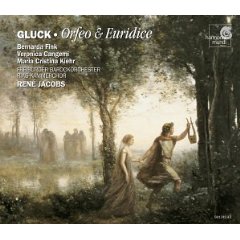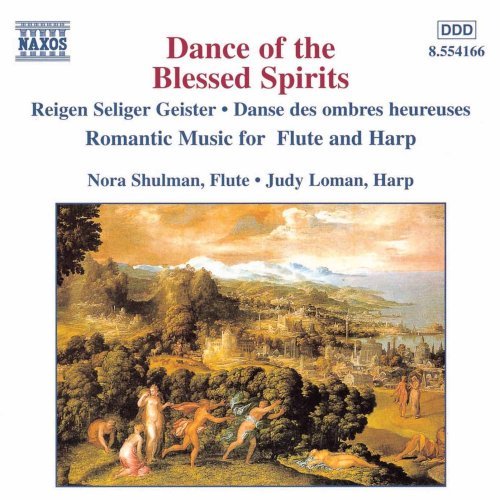| www.laurahird.com |
| THE NEW REVIEW |
|
Article on the Wikipedia website
|
|
�Orfeo ed Euridice� had its premiere in Vienna in 1762, and was a conscious attempt on Gluck's part to write an opera that would be radically different from the all others, a 'reform opera' that would sweep away the popular format of aria-recitative and in its place put something so heart-rending, so raw, so real, it would make the audience forget their love of canary-like displays of coloratura and shudder with genuine agony in an excess of Aristotelian pathos. Here are only three singing parts: Orfeo, his dead wife Euridice, and the god Amor. The Chorus serves sometimes to comment on the action, sometimes to participate in it directly, singing the part of the outraged Furies who seek to bar Orfeo's way to hell. Why would anybody willingly venture into that darkness? What would be the chances you'd ever return? The power of the myth lies in the power of that question, and the answer we all acknowledge � for love, you'd do it for love. When the action begins Euridice has just died, the overture for orchestra is a terse, jagged annunciation of unbearable grief. Then we see Orfeo, stricken, helpless, calling on the gods to take pity on him. And the wonder of it is � they do. But there's always a catch when you make a deal with the gods, isn't there? Well, he who dares, wins, and Orfeo is up for it. Down to the Underworld he goes, where he finds a confused Euridice who doesn't seem to recognise him, wandering with the other spirits in the Elysian Fields. He finally persuades her, however reluctantly, to follow him, but as the gods have forbidden him to look at her, she's not at all sure what he's up to. When he finally succumbs to her pleas and takes her in his arms, she dies a second time, and all is lost. This is where Gluck gives us his most remarkable coup du the�tre , the indisputably great aria, 'Che far� senza Euridice' � a lament for lost love that rips the heart out of the breast. Where anybody else would have given us the minor, Gluck gives us the major and thereby achieves the perfect expression of absolute despair, that moment beyond all tears when nothing at all remains. In a bizarre volte-face, the gods reconsider the terms of the deal, and bring Euridice back to life one more time. So the hapless lovers are reunited, happy after all, happy at last. There is a strange, dream-like unreality to this ending, reflected in the buoyancy of the final chorus, as if to say, 'If only life were like this! If only...' There are many fine recordings of Orfeo ed Euridice but the best, the one that captures the most of passionate intensity, is that conducted by Hartmut Haenchen on the Capriccio label with Jochen Kowalski as Orfeo. Reproduced with permission

|
| ORFEO ED EURIDICE Christoph Willibald Gluck (Christoph Willibald Gluck 1762) Considered by Grace Adreacchi |
| If you are interested in contributing to this section, contact me here |
| The Devil Has All the Best Tunes |
|
About Me Artists Best Tunes Books & Stuff Competition Contact Me Diary Events FAQ's Film Profiles Film Reviews Frank's Page Genre Bending Hand Picked Lit Links Heroes Index Links Lit Mag Central The New Review New Stuff Projects Publications Punk @ laurahird.com Recipes Samples Sarah�s Ancestors Save Our Short Story Site Map Showcase RELATED ITEMS Order �Orfeo ed Euridice� Order �Evgeny Kissin Plays Schubert / Brahms / Bach / Liszt / Gluck� Order Gluck�s �Dance of the Blessed Spirits/Romantic Works for Flute and Harp�
|

